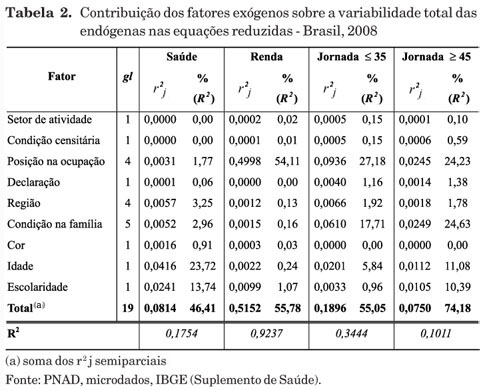This paper analyzes differences of health conditions between and within agricultural and non-agricultural workers in Brazil. Self-reported health measures of the Health Supplement of Pesquisa Nacional por Amostra de Domicílios (PNAD), from 2008, are used. Results are based on the description of the socioeconomic characteristics of each group of employees and on estimates of a simultaneous equation to measure non-linear relations between health conditions, income and work hours. The main hypothesis is that the lower prevalence of workers with good health among agricultural workers is mainly due to socioeconomic characteristics of this group and not necessarily to higher insalubrious conditions that such workers would be submitted to in equivalent socioeconomic conditions than non-agricultural workers. Similarly, inequalities in health status within agricultural workers may be lower than non-agricultural workers due to more homogeneous kinds of activities, quality of life and consumption, usually found in less developed areas where agricultural workers prevail.
health conditions; agricultural and non-agricultural labor market; inequality













